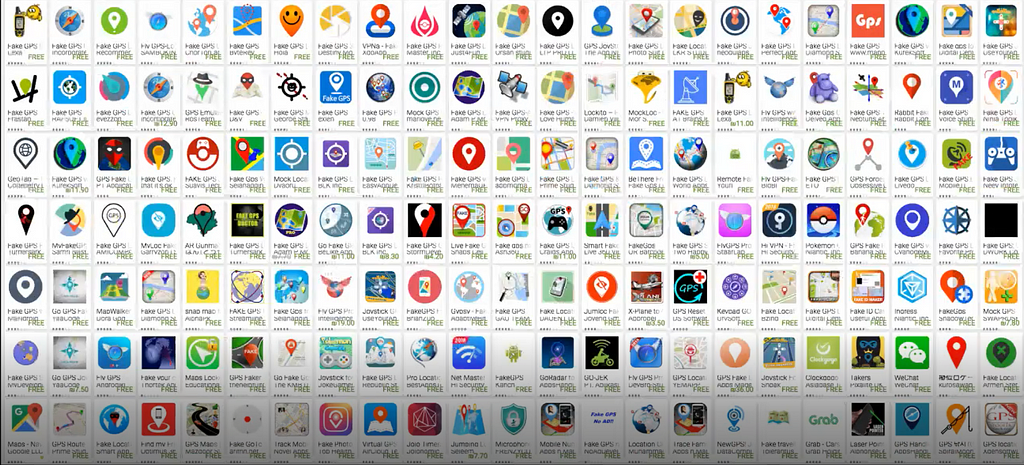Latest news about Bitcoin and all cryptocurrencies. Your daily crypto news habit.
 Platin decentralizes the location services marketplace with secure location capabilities for any digital asset
Platin decentralizes the location services marketplace with secure location capabilities for any digital asset
In the physical world, location, location, location is the number one rule in real estate. It means otherwise identical homes can have different marketability and hence diverge in price due to their location. In the digital world to date, we have largely come to accept that assets are entirely fungible. But should they be, and do we expect them to stay that way in the future? The value of location is well understood, for example, in games like Pokémon GO, where physical proximity needs to be ensured to capture the game’s characters.
Platin is betting that location matters as much for digital as it does for physical assets, and has set out to decentralize the location services marketplace with secure location capabilities for any digital asset.
Application of location to digital assets
There are quite a few use cases that come to mind, so we will focus on discussing just a few of them.
Tagging digital assets to a physical location
One can tag digital assets to a specific location, thus making the asset, in the example above a bitcoin, appear real and tangible, thus merging the physical and digital worlds (a.k.a. “augmented reality”). The bubbles around the asset represent the policies that define the logic of what one needs to do to actually claim the digital asset.
Perform location-based Know-Your-Customer (KYC) authentication Extend Know-Your-Customer (KYC) authentication to include location
Extend Know-Your-Customer (KYC) authentication to include location
Financial institutions that want to ensure that they know where their customers are can utilize the Platin API (application programming interface) to perform a real-time airdrop for secure location verification.
Generate real human traffic Using location-bound digital assets instead of coupons
Using location-bound digital assets instead of coupons
Retailers like Starbucks are enabled to drop coupons in proximity to their store locations, thus ensuring that foot traffic is incentivized to visit the shop.
Geo-fence a digital asset Restricting the geographical use of a digital assets like Seoul’s S-Coin
Restricting the geographical use of a digital assets like Seoul’s S-Coin
Only this week, Seoul announced plans to launch its own cryptocurrency, the S-Coin that could be used as a payment method for city-funded welfare programs for public employees, young job seekers and citizens helping the environment by saving electricity, water and gas. Using the Platin protocol, such a cryptocurrency can exhibit different behavior inside and outside of the Seoul metropolitan area, for example, to ensure that social services are only consumed when resident.
Create a humanitarian air drop Directly air drop digital assets into geographical areas in need
Directly air drop digital assets into geographical areas in need
The Platin Foundation is setting up a humanitarian task force to focus on airdropping crypto assets on needy communities and communities affected by natural disaster and catastrophic events such as war, economic collapse, earthquakes, famine, etc. The Platin Pocket application includes functionality that allows users to directly air drop digital assets into geographical areas in need.
Location spoofing
If you are a sceptic like me, your reaction will be “Well, that is all great, and I understand the examples, but isn’t our location information secure already?”. I must admit that I actually occasionally spoof my location through a VPN (virtual private network) provider in order to watch US sports from Japan (I still pay my dues to the channel provider, mind you!), however, I was not aware of the abundance of GPS and geo spoofing applications that are out there — just google for “fake gps”.
 A small selection of location spoofing applications
A small selection of location spoofing applications
So there seems to be clearly a market for that, and in our early example of Pokémon GO, there is sufficient evidence that location hacking has played a major role in the success of many players. Now, what if these were “real” assets, not just little digital monsters…..
The Three Pillars of Platin
Platin’s innovation ultimately rests on three pillars that combine to ensure secure location claims, and allow for the development of new business models.
Sensor Fusion
Platin makes use of on-device location-relevant sensors such as GPS, Bluetooth, accelerometers, WiFi and cellular-network observations. Both Android and iOS allow for these sensors to be combined in different ways and provide sufficient precision. Platin combines different sensors’ values in a robust manner to counter simple spoofing attacks.
Behavior over Time
Platin tracks mobile device locations over short time windows and user behavior over longer periods of time. Short time observations will allow Platin to implement anomaly detection techniques and evaluate the validity of location claims. Platin will also peer into users overall behavior over time, including their location and prior coin claims, and use these to build up users’ reputation scores. Platin achieves this through a privacy-preserving approach, whereby no information, except for the trust score, actually leaves the device.
Peer-to-Peer Witnessing
Users will be able to act as witnesses for each others’ locations through the use of short-range communication techniques such as Bluetooth, WiFi, ultrasound and camera. Platin envisions that most of this interaction happens without any active user involvement. Users’ efforts in verifying other’s location claims will be rewarded
We expect this to be only the first in a series of articles on Platin and similar protocols, to take a closer look at this technology and its application. We will take a closer look at the people behind Platin, the technology (and especially the privacy aspects), the emerging business models, and the competition. Follow us so that you do not miss the next installment!
Also, for further information, the following resources are available:
If you found value in this article, please “clap” (up to 50 times).
Should you live in Tokyo, or just pass through, please join our Meetups:
Disclaimer
The views and opinions expressed in this article are solely those of the authors and do not reflect the views of Bitcoin Insider. Every investment and trading move involves risk - this is especially true for cryptocurrencies given their volatility. We strongly advise our readers to conduct their own research when making a decision.